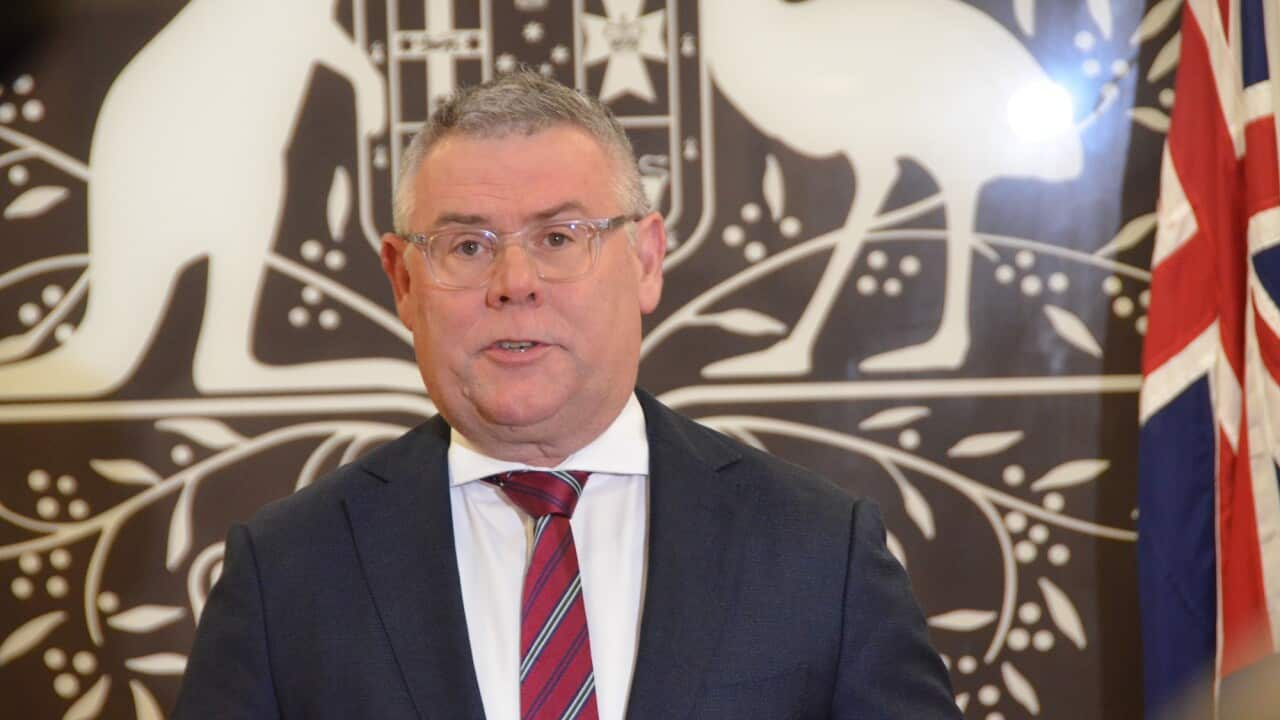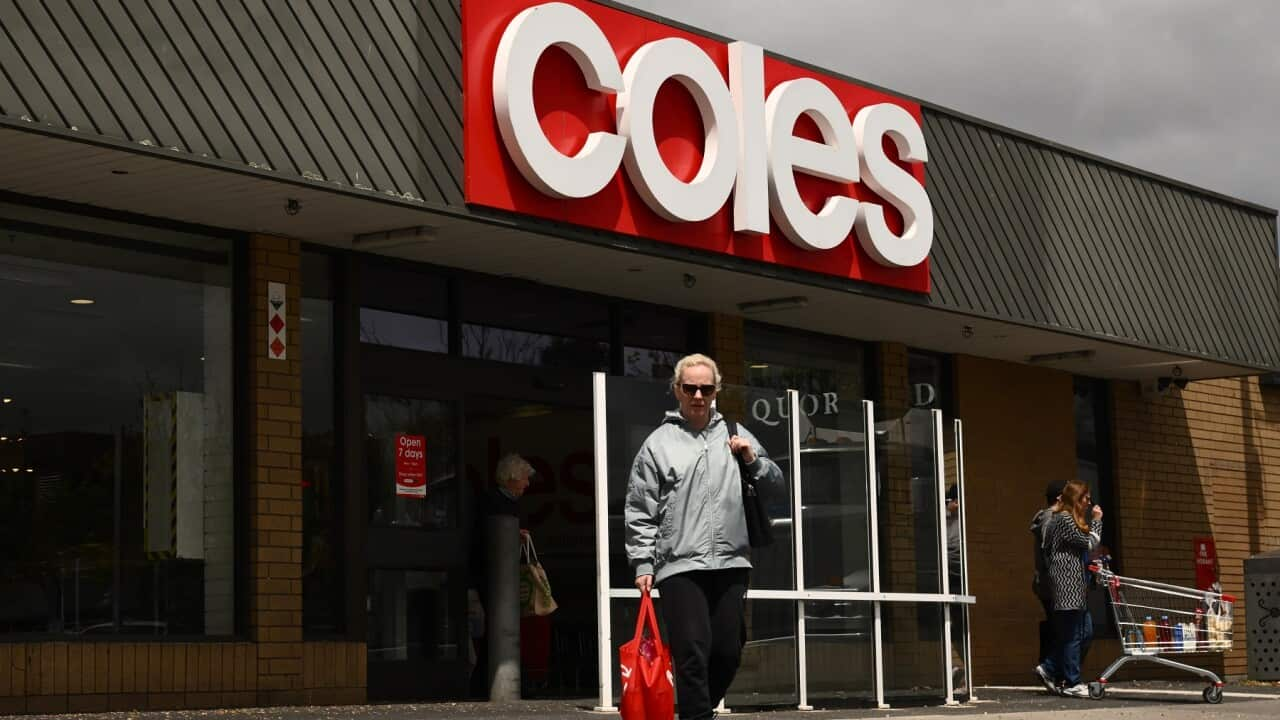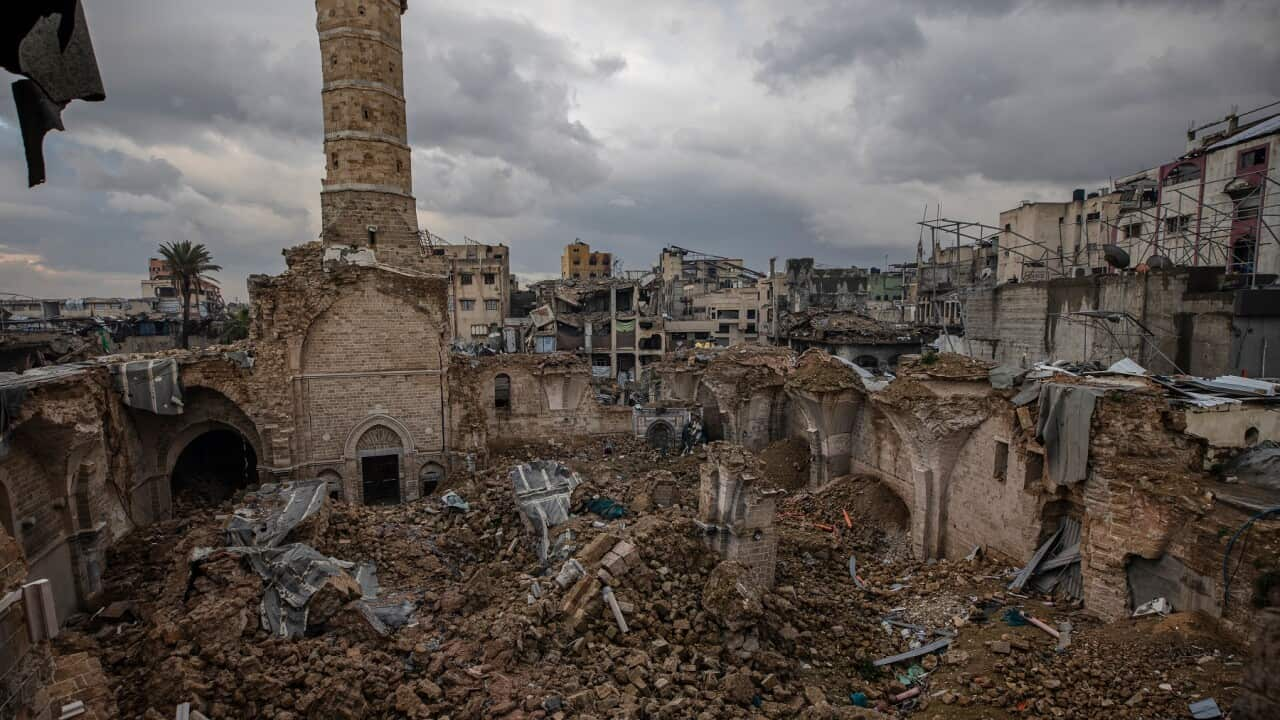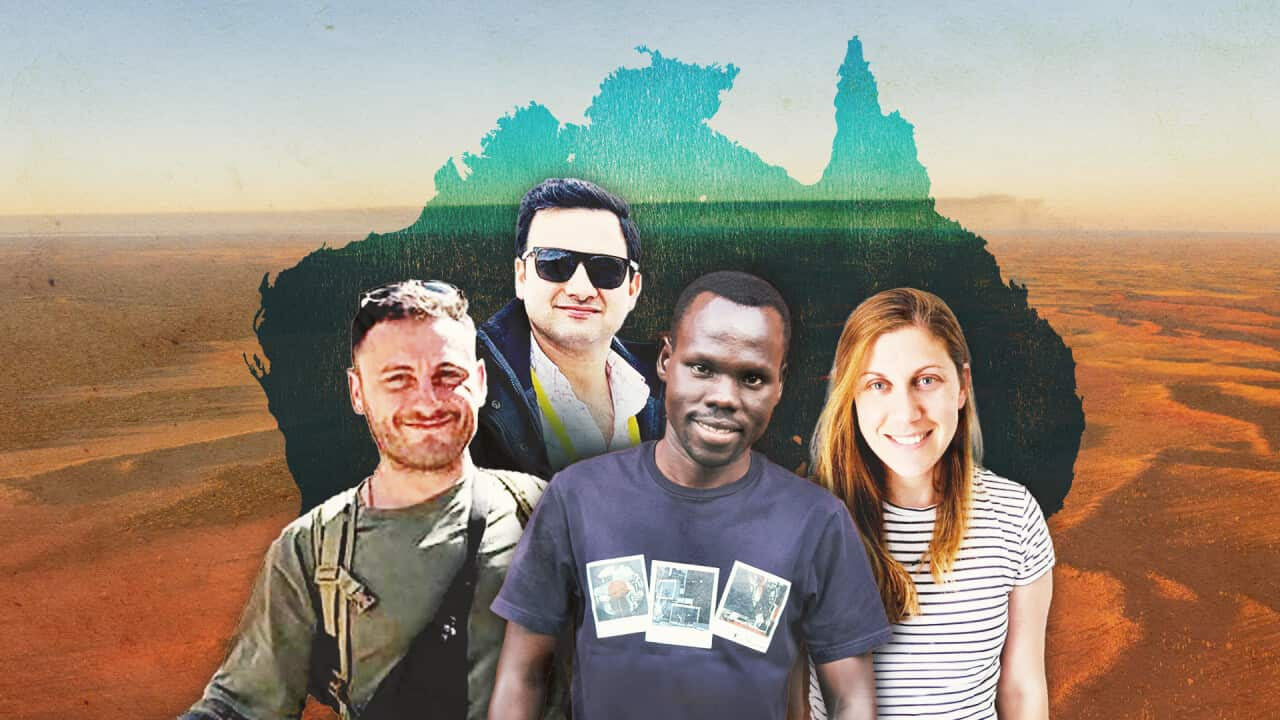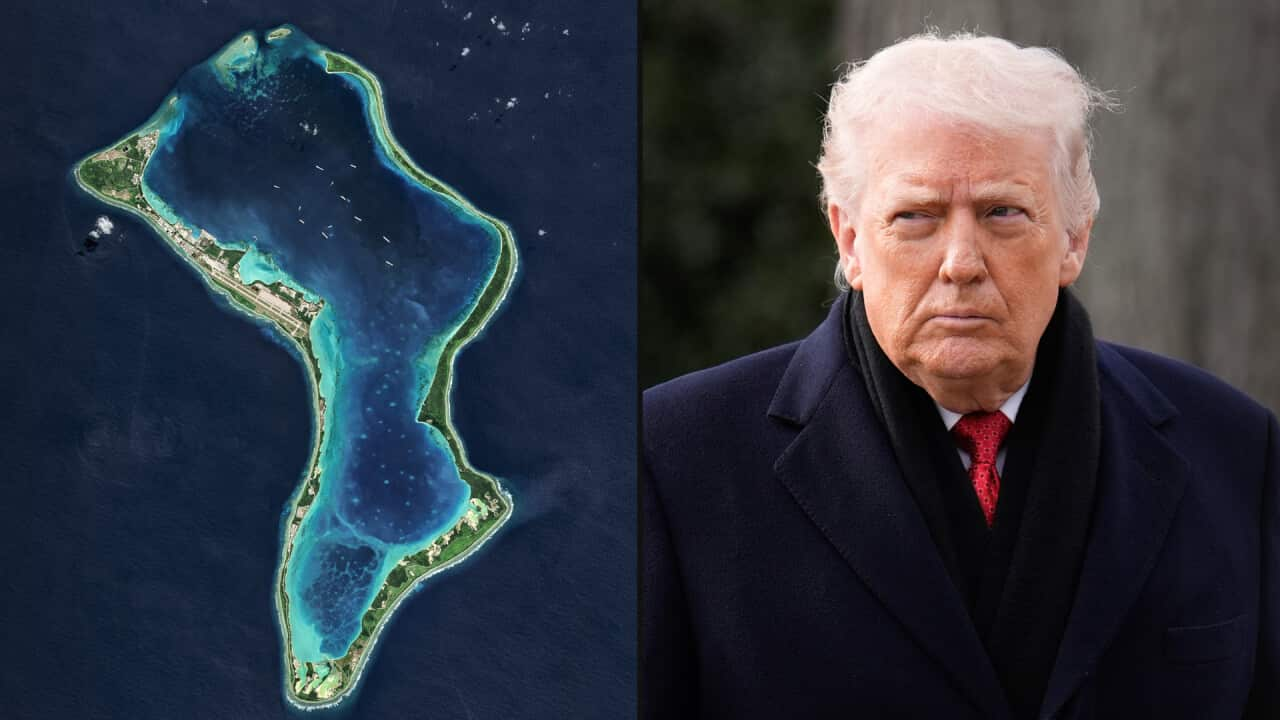Listen to Australian and world news, and follow trending topics with SBS News Podcasts.
TRANSCRIPT
After committing $100 million to the new Pacific Climate Resilience Fund, the Australian government has now decided to extend operations at one of the world's largest gas facilities until 2070.
Woodside's highly controversial North West Shelf gas project in Western Australia has been condemned by environmental groups.
Describing it as a 'carbon bomb', the Climate Council says the decision would lock in more than 4 billion tonnes of climate pollution over its lifetime.
The extension has also been condemned by local Indigenous groups, who fear the project could seriously degrade ancient Aboriginal Murujuga rock art.
Four months after granting provisional approval, Federal Environment Minister Murray Watt says the details have now been finalised - and close to 50 conditions are attached to the final approval.
"Specifically, I've imposed conditions that will require a reduction in certain gas emissions below their current levels. In some cases, by 60 per cent below their current levels, by 2030 with ongoing reductions beyond that. The conditions will also allow for any new science achieved through the Murujuga rock art monitoring program to be accounted for by requiring the approval holder to comply with any air quality objectives and standards that are derived by that monitoring program. Separate to this, the project will also be required to reach net zero greenhouse gas emissions by 2050 - under the Albanese government's strengthened safeguard mechanism."
A 2024 analysis from the Australian Conservation Foundation warned the lifetime environmental impact of the project could total more than 13 times Australia's annual emissions.*
The approval comes after the Prime Minister told reporters in the Solomon Islands that action on climate change was the entry fee to credibility in the region.
Attending the Pacific Islands Forum, Prime Minister Anthony Albanese faced questions over why Australia's 2035 emission targets weren't released ahead of the project approval; and the start of the summit.
Under the Paris Agreement, the 2035 emission reduction target - what's called a Nationally Determined Contribution - is due to be announced by Australia in September.
Mr Albanese says he has been waiting to receive all the relevant advice.
"Well, we haven't received the advice yet. So when we receive it, we will then have a Cabinet meeting and we'll make a decision. So it's impossible at this point to comment on hypotheticals. We have legislated world's best practice, which is a Climate Change Authority make a recommendation to the government; the government then will make a deliberation and make a declaration of our NDC (Nationally Determined Contributions). And then we'll also release publicly the advice from the Climate Change Authority."
At the Pacific Islands Forum, Mr Albanese was under pressure from Pacific leaders to show that Australia is moving away from fossil fuels.
But Mr Albanese says there is a role for gas in Australia's energy mix as it moves towards net zero.
"What we will continue to do is act in Australia's interests, but also in the interests of engaging in action on climate change. And we know that gas has important role to play in the transition."
A landmark advisory opinion delivered by the International Court of Justice earlier this year (in July 2025), found all countries have a legal obligation to protect and prevent harm to the environment from greenhouse gas emissions.
In 2019, law students in Vanuatu initiated a campaign to have the court issue the opinion, which is not legally binding but carries significant legal weight.
Vanuatu's Climate Minister, Ralph Regenvanu [[Reg-gen-vah-new]], says Australia should consider this when making such critical decisions.
"The advisory opinion of the ICJ made it clear that going down the fossil fuel production expansion is an internationally wrongful act under international law. So that's something that Australia should consider."
With Australia's 2035 emissions reduction targets expected to be revealed next week, debate within the Coalition continues over whether Australia should abandon a net zero goal altogether.
The opposition's spokesperson on Pacific Island Affairs, Jason Wood, told ABC Radio National that the Coalition won't abandon the Pacific when it comes to climate change.
"We just need to be sure that we go about it the right way. Because there is a lot of money being spent on this. And again, I was actually against nuclear, now I've actually changed my position because I think it's something we need to look at that. So when it comes to net zero, Dan Tehan is having a look at energy policies. Let him go through his process, that's what Sussan (Ley) and the leadership team wants. So we've got a process in place. Let it play out."
The Climate Change Authority is expected to hand down its advice within days.
It is considering a emissions reduction target of between 65 and 75 per cent, although it could be lower.
Independent Senator David Pocock told ABC News Breakfast that Australia should see this new target as an opportunity to prove that it's serious about climate action.
"Well, I've seen analysis where if you add up all the state and territory commitments, you're getting to 71 per cent. So I think anything less than 75 per cent is a betrayal of Australians. It's a betrayal of the people and places we love. There is a lot at stake here. We need a bold, ambitious target that we can work towards. And we can then take to the UN to the COP (UN summit), and urge the rest of the world to get on with this, to accelerate the transition. There is just so much at stake. In a country that is so exposed to extreme weather events at the best of times, we know what that's going to look like."
